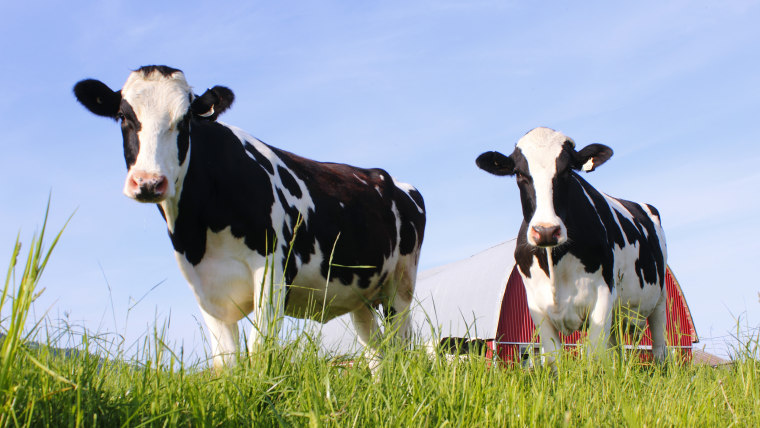Is dairy from a "grass-fed" cow better?
The Food and Drug Administration is expected to approve a new infant formula made from the milk of cows that are on pasture 365 days a year. The new formula is called Munchkin and is the latest arrival in your grocery store's organic market.
Grass-fed dairy products are more expensive — the new formula will cost $40 a can, compared to $30 for basic, non-organic formulas, for example — but are they healthier?

What grass fed means and doesn’t mean
There are two major players in the United States that control labeling and standards for the food industry: the FDA and the USDA. They play very different roles. In 2016, the USDA withdrew support for grass-fed marketing claims, which means grass-fed is a loose definition like "natural." So a grass-fed cow may not have spent its entire life roaming the countryside.
A 2011 study found grass-fed beef was superior to grain-fed beef in terms of omega 3 content. A recent review by Consumer Reports showed grass-fed beef was less likely to harbor disease, and thus less likely to cause significant food-borne illness in the end user.
The organic side of dairy
The USDA does have very clear standards for what foods can and cannot claim an organic label under their National Organic Program (NOP). Here’s where it gets confusing: Organic cows are required to have access to pasture during the grazing season, but that pasture only needs to represent 30 percent of their feed over that season.
On the flip side, grass-fed meat and dairy mean the cows have access to outdoor pasture — but that pasture could potentially have pesticides on it (prohibited in organic labeling) and the cows may still be given hormones or antibiotics (another no no for organic labeling).
So if we go back to the formula debate, ideally, your dream infant formula would be both grass-fed and organic.
How does the FDA tie into this? They oversee infant formulas and are responsible for making sure they are safe and effective. It’s the FDA that tests formula for quality and nutrient density before it hits the market. The new grass-fed product boasts 100 percent pasture-raised over the lifetime as well as a hormone- and antibiotic-free product.
Is your dairy better from a grass-fed cow?
Happy cows produce milk that contains more beneficial fatty acids, antioxidants and vitamins, according to a 2016 study. They also produce about 60 percent more conjugated linoleic acid, an omega 6 fatty acid associated with weight management, improvements in immune function and benefits to heart health.
There is research that cows grazing on the grass are happier. A 2017 study in the journal Nature shows that may actually be accurate. The study demonstrated cows were highly motivated to access the outdoors, even as much as finding feed in their indoor dwellings.
Is a grass-fed formula worth the extra cost?
What a mom feeds her baby is a very personal choice based on numerous factors. Cost is one of them. You’ll pay more for formula that comes from happy, pasture-raised and hormone-free cows than from their grain-fed counterparts, because organic farmers pay more and pass those costs onto the consumer.
Will a child fed with grass-fed dairy be healthier, stronger and smarter?
The research is unclear. But if you’re just looking for something more natural, this could be a promising option for consideration.
RELATED:
More is not always better: 4 things to know about protein
Raw milk fans cheer looser state laws. But is it safe?
Two dead from eating raw milk cheese tainted with listeria
Kristin Kirkpatrick, MS, R.D., manager of wellness nutrition services at the Cleveland Clinic Wellness Institute in Cleveland, Ohio, is the author of "Skinny Liver". Follow her on Twitter @KristinKirkpat